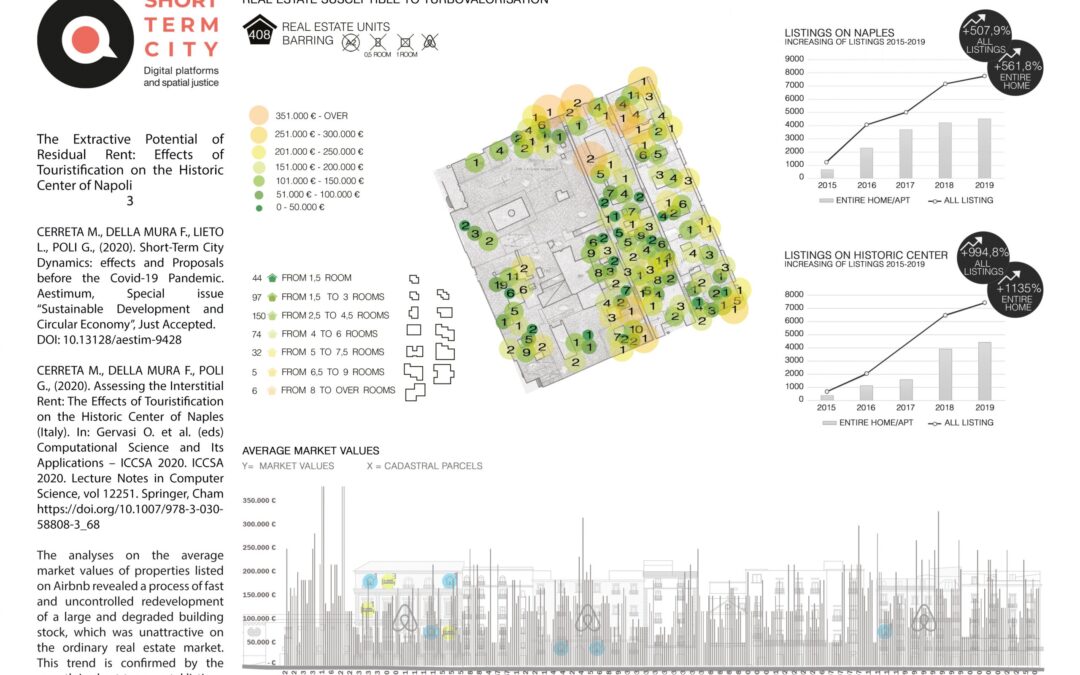

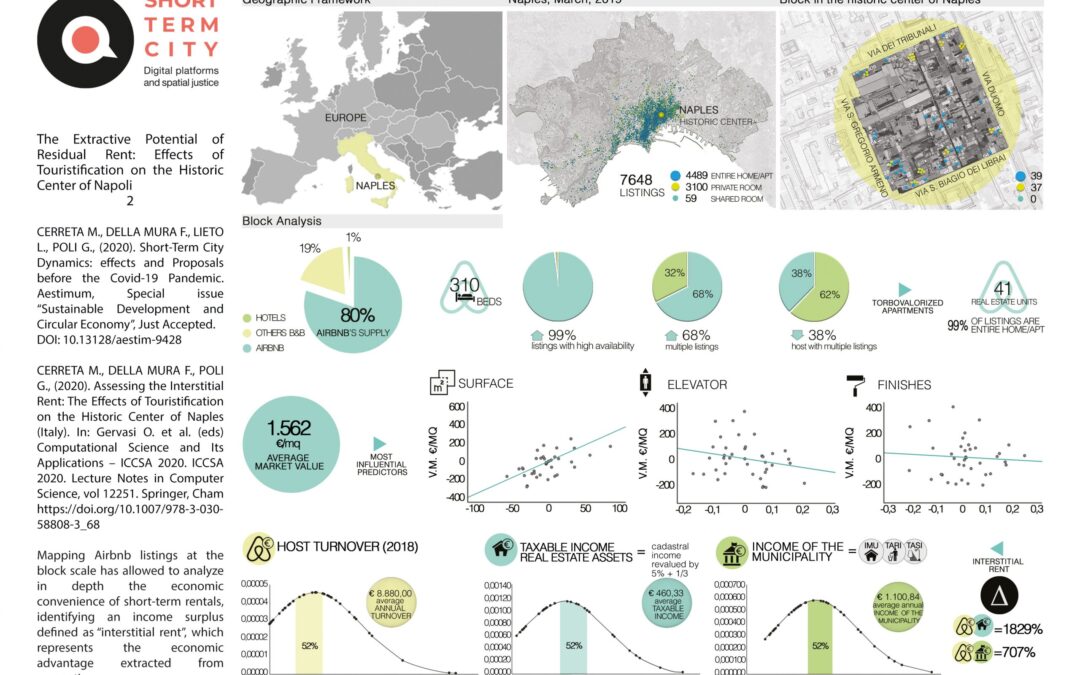
The Extractive Potential of Residual Rent_2
The Extractive Potential of Residual Rent: Effects of Touristification on the Historic Center of Napoli / 2 PROJECT DESCRIPTION By looking at individual listings we refined aggregated data and found out that 99% of the listings refer to an entire apartment, for a...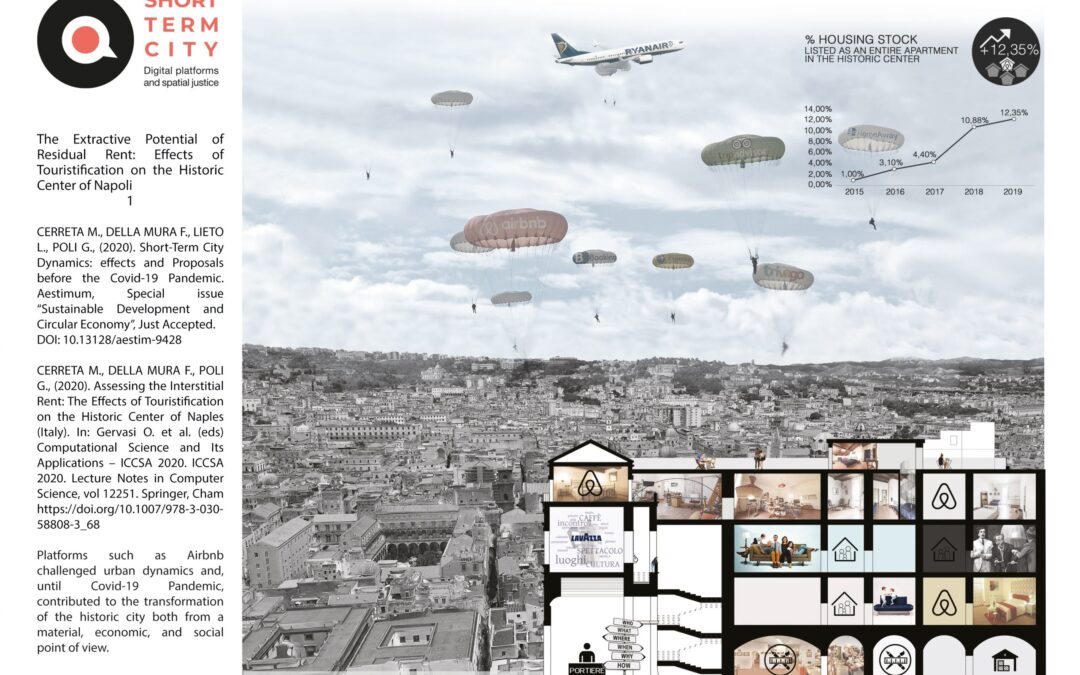
The Extractive Potential of Residual Rent_1
The Extractive Potential of Residual Rent: Effects of Touristification on the Historic Center of Napoli / 1 PROJECT DESCRIPTION The city’s airification started in 2015.Short-term listings have grown rapidly, especially in the historic downtown, gradually...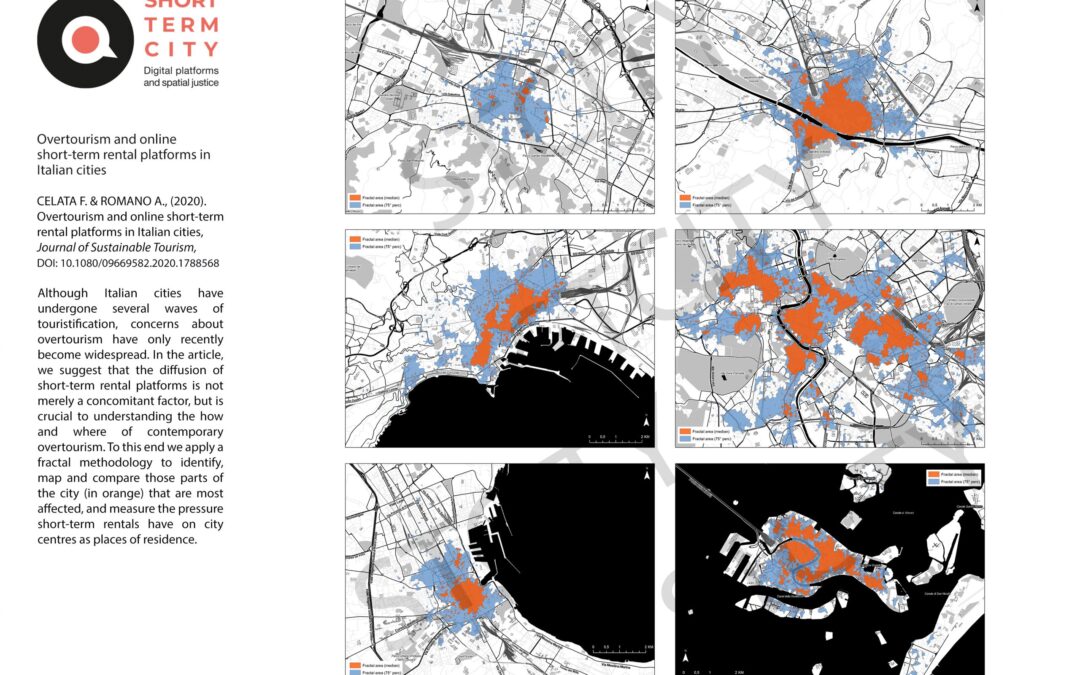
Overtourism and online short-term rental platforms in Italian cities
Overtourism and online short-term rental platforms in Italian cities PROJECT DESCRIPTION Although Italian cities have undergone several waves of touristification, concerns about overtourism have only recently become widespread. In the article, we suggest that the...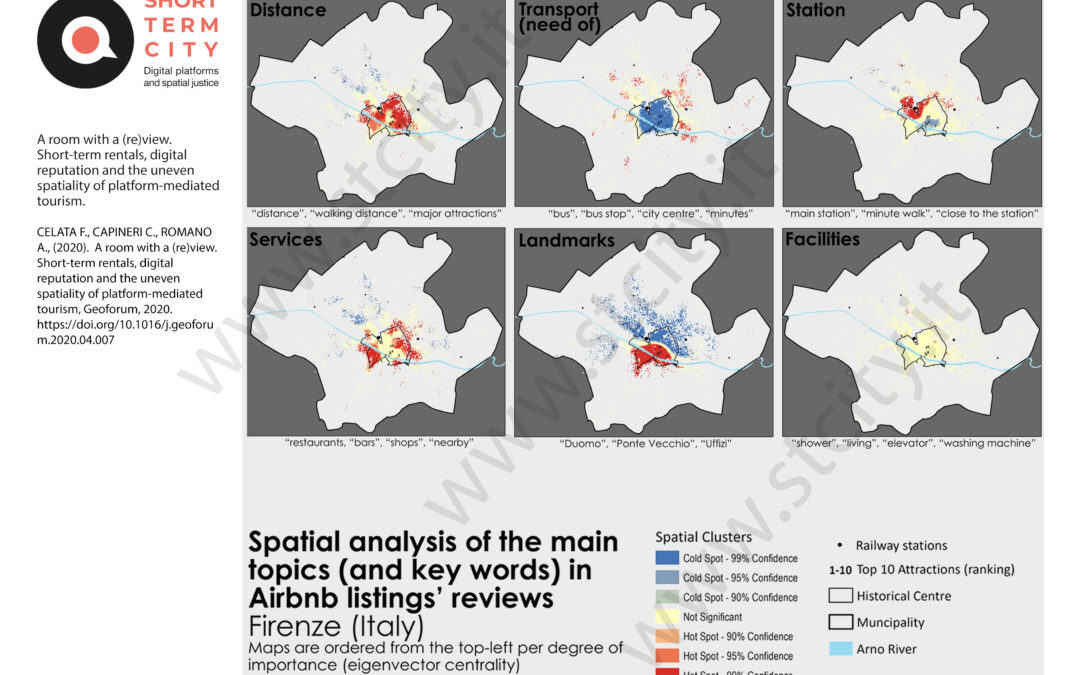
A room with a (re)view
The article investigates how users’ reviews on digital accommodation platforms represent the city and mediate urban tourism practices. Drawing upon research on user-generated contents, digital reputation, platform capitalism, and the spatiality of short-term rentals, the aim is to show the performative power of the reviewing mechanism in enhancing visibility, building trust and distributing value unevenly in the city. We show how such unevenness is constructed through the layering of different meanings conveyed by guests’ reviews, each having its own specific spatiality. In order to detect and map these meanings, we develop a textual analysis of the content of reviews and a spatial analysis of the distribution of their most salient topics in the city of Florence (Italy), based on a dataset of 491,379 reviews left by guests on Airbnb.com. Platform users – we argue – display an overtly calculative rationality and portray the city as an abstract space where the choice of the accommodation is aimed at minimizing travel distances from an access point to a few top attractions. Distance and centrality override any other concerns about the characteristics of the apartment, the host, the service and even the price. Peripheral listings are not evaluated negatively: they are almost invisible. This “tyranny of distance” is co-produced by users and amplified by the platform’s algorithms and interface: it contributes to the further shrinking of the tourist city into a few privileged neighborhoods, and raises questions about the selectiveness and increasing pervasiveness of platform-mediated tourism practices.
